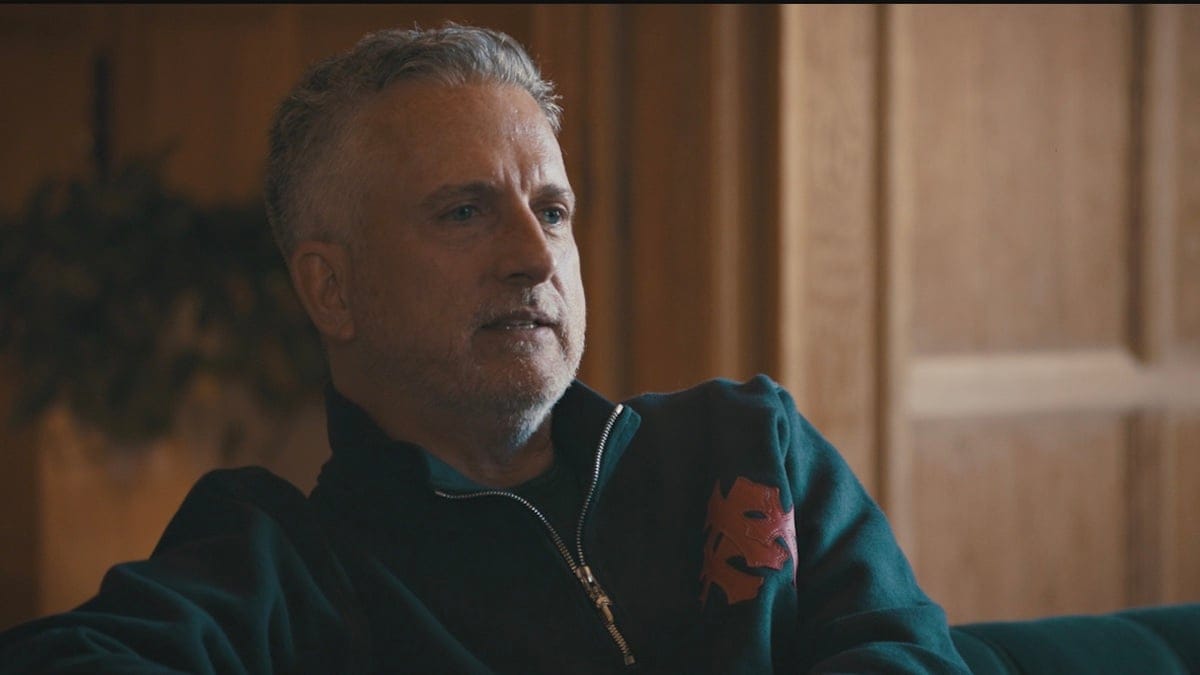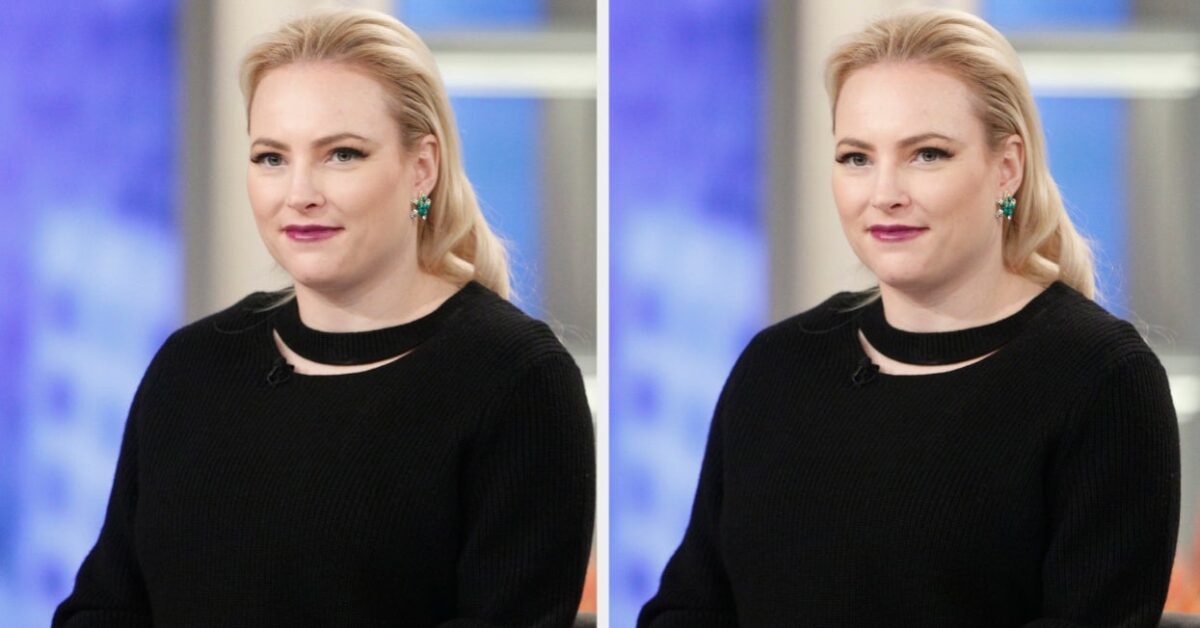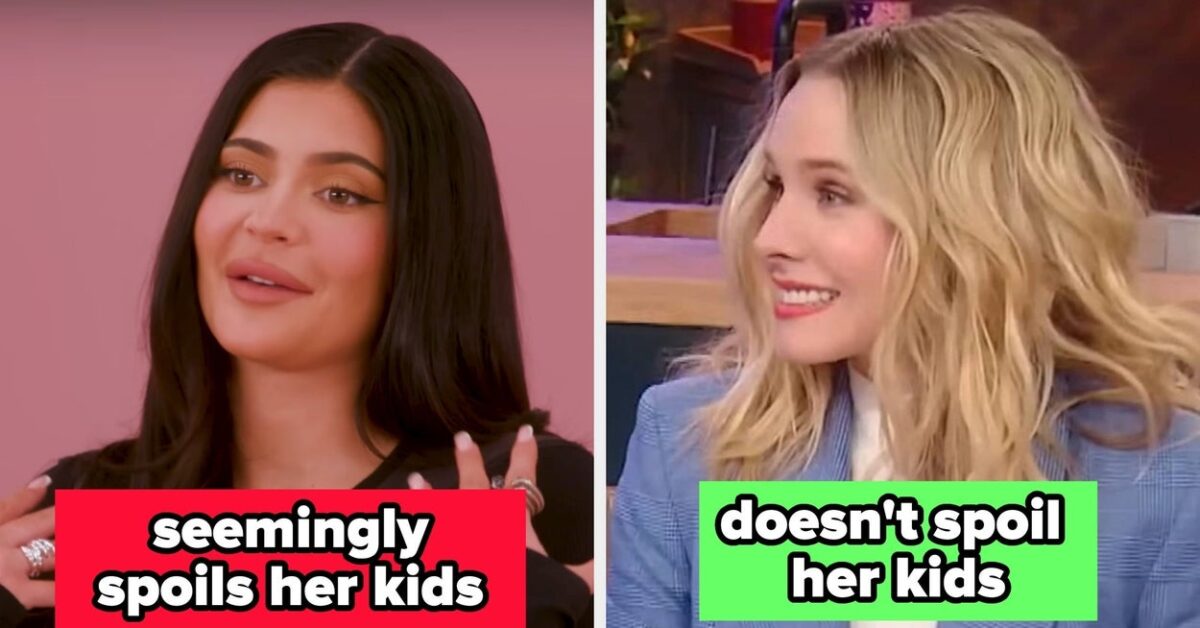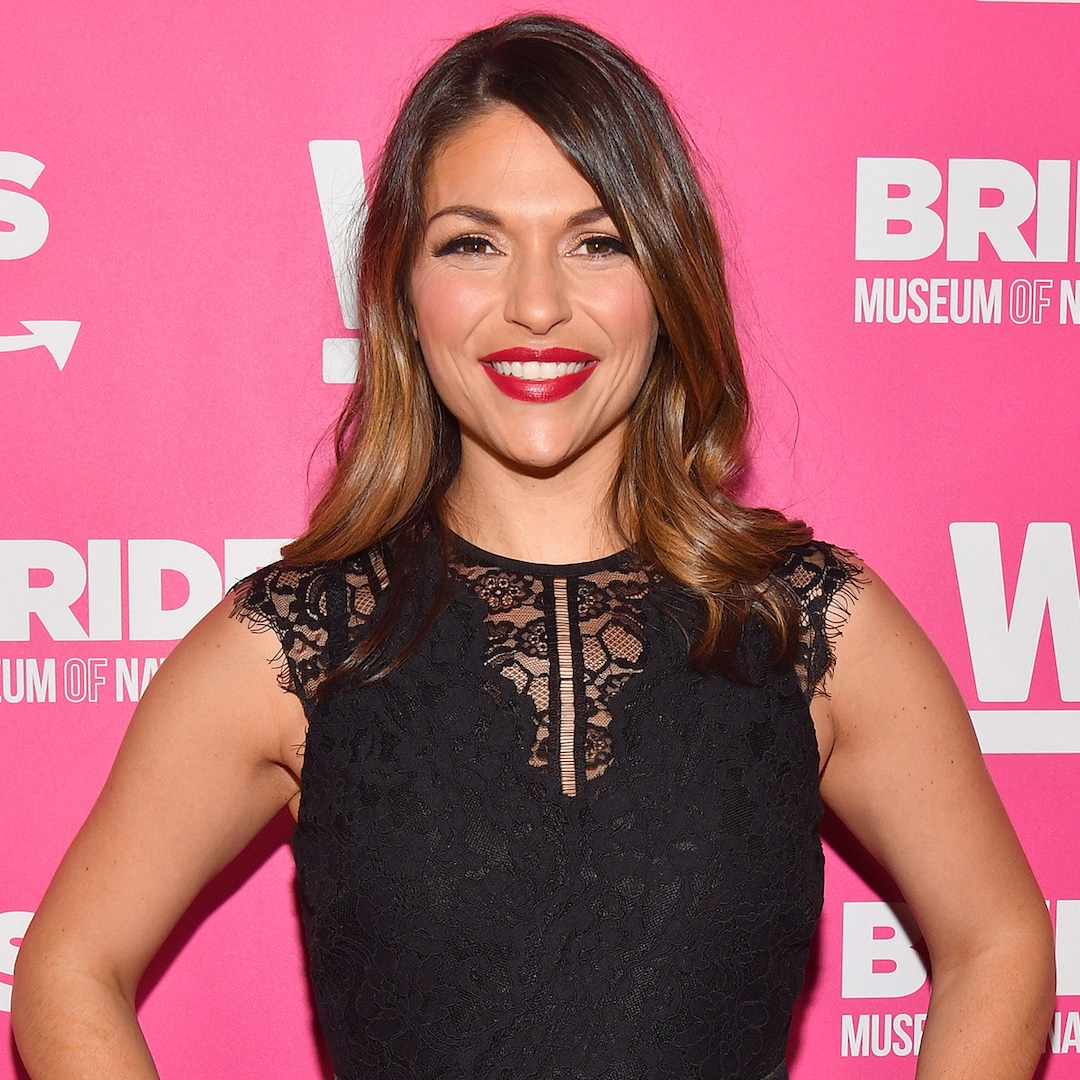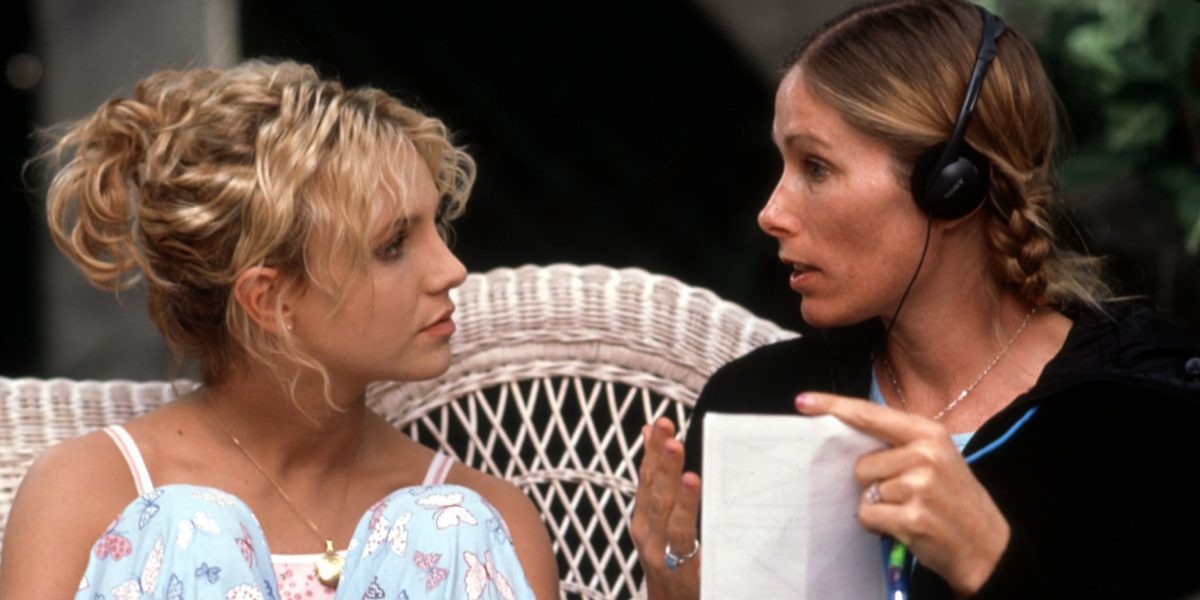
‘Crossroads’ Director Reflects on Not Being Able to Protect Britney Spears
Oct 23, 2023
The Big Picture
The movie Crossroads is being re-released for a limited time to celebrate the release of Britney Spears’ memoir, The Woman in Me. The film was made by women, for women, and explores important topics while showcasing the importance of female friendship. Director Tamra Davis discusses how she stripped back Britney Spears’ persona to portray her character honestly, and emphasizes the significance of a scene where Spears dances in her underwear.
To celebrate the release of Britney Spears’ highly anticipated memoir, The Woman in Me, 2002’s romantic dramedy Crossroads returns to the big screen for a two-day only global fan event. Newcomers and loyal fans who have had a rough time trying to find ways to view the flick over the years (it hasn’t been available for streaming) can check out the pop superstar’s turn as Lucy, a young woman who reconnects with childhood friends Kit (Zoe Saldana) and Mimi (Taryn Manning) on a road trip. Joined by Mimi’s friend Ben (Anson Mount), thanks to the fact that he has a convertible best suited for the open road and plenty of singing along to the radio, they learn the importance of friendship and real love, and they find their voices along the way.
During this 1-on-1 interview with Collider, the film’s director Tamra Davis talked about revisiting the film for this nostalgic release, how special it was that they got to make a film by girls and for girls, what it was about the script written by Shonda Rhimes that appealed to her, her first meeting and first impression of Spears, stripping back all the layers of the singer’s persona to bring out this performance, why the scene of Spears dancing around a bedroom in her underwear while singing a Madonna song was such an important moment, her fight to keep in the sex scene, and the need to have compassion as Spears finds the strength to tell her own story now.
Collider: I did the junket for the theatrical release of Crossroads, so it’s been fun to revisit the movie.
TAMRA DAVIS: Oh, how cool.
Image via Paramount Pictures
Have your own thoughts or feelings about the film changed, over the years? Do you think about your previous work or revisit it, in any way? Do you have any different appreciation or fondness for it, all these years later?
DAVIS: Yeah. For me, whenever I do a film, you work on it so hard and so much that after getting through all the post and how many times you’ve seen the movie, I really never watch them again. But once in a while, you have to go back on a 10-year anniversary, or a 20-year anniversary and see them again. This one was hard because it’s not available, so I’d have to pull out an old DVD. You can’t just stream it. I was trying to get ahold of it because everybody was asking me, “How come we can’t see Crossroads? How come we can’t download it?” And so, when I got the call from Sony that they were re-releasing it, I had to correct the color and it was one of the first times I’d seen it in a while. I was incredibly struck by how well it stood up and how important the story was. It was amazing. The only thing you can do, when you work on it, is to work really hard. You don’t know what the reaction is, from the next day to 20 years later. All you can do is your best work, at the time, and I feel like we did that. When you look back at it, it’s a beautiful film that holds up incredibly well, if not better now than it did when it was released.
One of the things that I had forgotten was that there are some heavy subjects and issues that are discussed in the film. Are you surprised that you were able to include some of the things you had in this movie?
DAVIS: Yes. We were doing something that was so unusual at the time. We were making a film by girls – it was (writer) Shonda Rhimes, myself, and (producer) Ann Carli behind the camera – and also for girls. We were making a girls’ film. And so, when I rewatched it, I was like, “Oh, my God, I can’t believe that these are huge issues and huge topics to be talking about.” They’re also topics that take time. It took time for them to become vulnerable enough to open up to tell their stories, so you got the truth of what these girls were going through. I really loved how the movie unfolded and showed how important female friendship is. This was before social media, so you got to spend late nights with your friends in hotel rooms and have these quiet discussions without a phone around and a distraction. It’s just them having a good time.
One of the things that I really liked about the movie was the fact that it didn’t showcase the flashy and showy performer that Britney Spears can be. A lot of the movies like this build up to a big performance of some sort, and this felt much more scaled back and stripped down, whether it was her doing karaoke, or singing with a piano, or just standing by herself at a microphone. What was it like to shoot those moments with her, when she was really just a singer and not so much the big performer?
DAVIS: I think that’s what we really tried to do. When I first met Britney Spears, I saw her go from this regular, normal girl, and then, in the day that I spent with her in her hotel room in Las Vegas, I watched her transform into Britney Spears, that fierce woman who’s like, “It’s Britney, bitch.” She became that incredible person that she had to become to perform and be Britney Spears, but that wasn’t who she was playing. She was playing Lucy, a regular girl. It was a lot of work to take away all the Britney Spears and get Lucy out of her. She couldn’t just come with that confidence because that wasn’t who Lucy was. It was a different kind of performance. She had to perform as Lucy. She couldn’t perform as Britney. So, that was how Lucy would have performed, and the insecurity and the timidness and the vulnerability. She had to have that vulnerability to give an honest performance.
Image via Paramount Pictures
It’s so interesting to watch because people like Britney Spears and Madonna, we think of them as performers and not necessarily just singers. Sometimes we have to be reminded of the fact that it starts alone in a room.
DAVIS: Yeah, it starts alone in a room. Her confidence, dancing on her bed and singing a Madonna song is probably the most Britney that you get. It’s that bedroom culture for us girls. That’s what you do alone in your bedroom. You’re not vulnerable there because nobody is judging you or watching you. When you’re standing on a stage, that’s a whole different person. That’s a vulnerable person who’s being judged while she’s trying to give her performance.
When we get introduced to her character in the film, Britney is dancing around her room in her underwear. Had there ever been a conversation or thought about cutting that moment, or about starting the movie any other way? Was that always the way you wanted to start it? What were the conversations with Britney like, when it came to that moment being her first moment in the movie?
DAVIS: First of all, I was a huge Madonna fan, and so was Britney. It’s a fantasy to watch that scene because, to me, as a Britney fan and a Madonna fan, I’m so girl crushing on that moment. It’s the most incredible moment. I was also filming her with a woman’s gaze. It’s not sexualized. That is what we do when we’re alone in our bedrooms. And then, the moment the door opens, we go back to being like, “Okay, sorry. You didn’t see what I was just doing.” That, to me, showed what this movie is about. And so, there was never a discussion not to have it. We had the rights to it, so we knew she was going to sing and dance to it. When I rewatched it, I was like, “Oh, my God, I’m such a huge fan that that’s my opening number.” That was my ideal. I was freaking out because it’s what I would fantasize about, Britney Spears singing a Madonna song in her bedroom.
When you first got the script for this, was it already packaged as a star vehicle for Britney Spears?
DAVIS: Yeah. When Ann Carli brought it to me, the script was already approved and ready to go. They were just looking for a director because Britney was already attached. I came on, and then we cast all the rest of the roles. It was her movie. I had also read the script before I talked to Britney, and one of the reasons why I wanted to do it is that I really admired that she was controlling the whole show, at that time. If people walked into her hotel room, it was because she said they could come in. And if she wanted them to go, she told them in a very lovely Southern way that it was time to go. I was like, “Oh, this girl is running this shit.” And I knew that this was a movie that she wanted to make. She wanted to change her image. She wanted to become a woman. It was important for her to leave the idea of this virginal little girl and grow up. She was really determined to do that. That was all her direction. I listened to her and was like, “Okay, sign me up. I’m ready to help you with this.” We went into it knowing that was her goal. We knew that it had to do with her record and that a lot of the songs from the record would be featured in the film.
Image via Paramount Pictures
Taking Britney Spears out of the equation, what do you remember about reading the script, the first time? What most stood out to you, especially considering who Shonda Rhimes went on to become?
DAVIS: First, it was a road movie, and I love road movies. My first movie was Gone Crazy with Drew Barrymore, and the romance that I have when it comes to being in a car driving with somebody, I love it. I immediately hired Eric Edwards as my DP, who shot My Own Private Idaho, which is also an incredible road movie. I loved the road movie aspect. It was also rare, as a female director, to get a script that was all about women and girls. I really found it incredible to try to tell this story about these three girls and their friendship and that fantasy of your best friends that you think you’re gonna grow up with your whole life, but then, by the time you’re in high school, you’re different people. Will those people get back together? It takes a road and time and to travel to get to that place where you can open up and be vulnerable. And so, those were huge elements. It was about trying to find yourself, at this young age.
Now that Britney is back in control of her own life, she has this memoir coming out, where she’s talking about her experience making the film. She’s said that it was not an easy experience for her because she didn’t know how to break out of character. Do you think that was at least partly because she wasn’t really an experienced actor when she took on the pressure of leading a film, which is a different experience than even doing music videos?
DAVIS: First of all, you never know what somebody’s got going on inside their head when they’re going through these things. As a director, it was a challenge to get that performance, and she had to do that. She had to do that style of acting because she couldn’t fake act. She had to really become this character. There are certain actors that are incredibly talented and who can do the scene, you say, “Cut!,” and they go back to being who they are again. Other actors become the character. Every actor is different. I’m very close with Drew Barrymore and I remember her getting so wrecked after she would do certain performances that, after a while, she just decided she couldn’t do that anymore and was only gonna do comedies because it messed her up to be in that head space. Liev Schreiber is a great friend, and when you play a character like that, people think you’re that character and they treat you like that, and then you start to act like that, and you don’t know if it’s you or the character. It can be very confusing when you’re an actor.
It’s the same thing with being a director. I am really particular about the worlds I choose to live in when I’m working because you inhabit that world. I don’t do violence because I don’t wanna have that in my head all day long. You take on all of that when you’re doing that, in order for it to be real. So, I’m sure that it was hard because. You could tell when she was acting, so I had to get her to be not acting, especially alongside the naturalistic performances that Taryn Manning and Zoe Saldana and Anson Mount were doing. It couldn’t be fake. She had to play tennis with those actors and be part of that. I’m sure it was really hard because it was probably hard for her to distinguish between the two of them. Lucy is a very different character than Britney, and she couldn’t be Britney in the film. She also wasn’t really the lead. It was an ensemble. She sings in it, so it makes it feel like she’s the lead, but it was nice to have her do a film where she was surrounded by actors and she wasn’t supposed to just be the lead when it came to this cast.
Especially with this core cast at the center, with Zoe and Taryn and Anson, did you have a moment when their chemistry all became really evident? Did that happen prior to shooting? Was there a scene that it just all felt like it clicked?
DAVIS: I was so happy that they really worked out, in production, and that we were able to do rehearsals before filming. We went into a room, that was one of those horrible little auditorium rooms with folding tables and chairs, and I would set them up by saying, “Now you’re in the car. Now you’re at a restaurant.” We would act out the whole movie. When you do that, it’s one of those romantic things you wish for as an actor, when you bring your script and you make your notes and you work things out, and you’re all equal. I feel like she was in a situation where she would come in and she couldn’t be Britney. She had to take off the hot pants and the fancy glasses and the big hair. Britney Spears might have gotten out of the car, but she had to transform and be Lucy. And the girls were so great with her. On tour, she would talk in and always be Britney, and everybody listened to everything she said. But in a room with your equals as actors, she became one of the girls, one of the actors, and she embraced that and transformed. I would see Marilyn Monroe in a Lee Strasburg theater, trying to get her into that place where she was just another actor in the room. That was the work she needed to do to find that authentic performance. We always shoot out of sequence, so I don’t even remember what we shot when or what we shot first, but I think that we shot a lot of the driving stuff later in the schedule and you can just really see how bonded everybody is, by that time.
Image via Paramount Pictures
It was so interesting to read that the studio wanted you to remove the scene where Lucy loses her virginity to Ben, and that you pushed back on that. Obviously, it stayed in the movie. As a filmmaker, what’s that like to navigate? How do you typically feel about test screenings and how do you gauge what battles to pick?
DAVIS: It’s so hard. I wish I could give you a great answer. For me, I always wanna make sure that I please the original people that signed me to do the movie, which is usually the writers, the producers and the actors. We’re the ones that made it, and if we made the movie that we intended to make, that’s the first thing, and then you have to make sure you’ve pleased the fans. I knew who Britney’s fans were, which were girls, so we tested to that audience. That’s where I had strength. Executives give you notes all the time, but it’s up to you. To me, I felt like, if I pleased my fans, I had strength in that. Her core audience of girls loved this movie. They did five or six tests, and they loved it. That also happened to me on Billy Madison with Adam Sandler. His audience loved this movie. The same thing happened to me on CB4 with Chris Rock. In the opening scene, the kids smoke pot at a 7-Eleven. The studio said they wanted me to cut that scene out, and I said, “No, that’s the whole movie.” I screened it, and when that scene came on as the opening of the film, the entire theater broke out and was screaming because they loved it. The head of Universal said, “All right, you can keep your opening.” The same thing happened with Sherry [Lansing], when I screened Crossroads the way it was written and I got a 98% point, which is insane. That meant my fans liked it, so I was able to keep my scene. If you’re trying to fight for something and it’s not good, and your audience tells you that it’s not good, you should listen to them. The audience of the fans told me that I made the movie that made them feel happy.
This was a girls’ sleepover movie. This was a movie for girls, and they loved it. But once you release it, you have no idea how the world is gonna react. If it’s not for you, you shouldn’t really be criticizing it. Just walk away, if it’s not for you. Time will tell, and I knew that girls loved this movie. I knew that little girls watched it in their bedrooms. I saw it five or 10 years ago when the London Film Festival showed it, and I was like, “Oh, my God, this movie meant so much to so many people,” watching the audience sing along and have the best time. Now, it wasn’t just girls, but it was boys and girls, and gay boys and gay girls. It was a huge singalong fun fest. I was like, “Gosh, darn, those stupid critics.” I learned that you don’t ever listen to critics, but Britney listened and she never worked again because of that. She might have had an acting career, but you guys took it away because you criticized a vulnerable actor. You have to watch what you say. I made a film about Basquiat, and he died at 27 because he listened to the freaking critics. Be careful what you say to vulnerable talent. I protect talent, 100%. We should be allowed to make artistic things, and if you don’t have anything nice to say, just don’t say anything.
What has it been like for you, in the years since making this movie, to see everything that Britney Spears has gone through and watch the public roller coaster, but then learn how much of it was out of her control, and then see her finally get that control back? Now, she’s in this moment of strength where she’s telling her own story in a memoir. What’s it like to be releasing the film again, to coincide with that release?
DAVIS: I’m so excited. I tried getting the movie re-released. I called lawyers, and I called everybody. Paramount’s distribution had fallen. They didn’t renew it, so it was available. It took one call from Britney. She wanted the film to be released to help promote her book, so she got the deal at Sony. What we can do as artists is to just stick around. If you did something that was authentic and it was good work, that’s all you have. It’s so important to enjoy life while you’re working on the thing, and have a great time when you’re on set because that’s your life and you should enjoy it, but once it gets released, you have no control over it. It’s up to us to just stay healthy and stay happy in our lives because you never know what comes back around again. Be ready. I’m gonna be Colin Kaepernick. If you wanna call me back out again, I’m ready. I’ve been working out, I’m here, and I’m ready to go. If you did good work, it will stand up. Maybe the world wasn’t ready for it then, so you have to be ready for it, if it comes back around again.
It’s crazy, what Britney went through. It’s so sad. When we were doing this movie, we were in a bubble. We had this beautiful set life and set experience, but then I had to release her back into the world again, where I couldn’t protect her and couldn’t keep anybody away. She had to go back to being Britney, after being part of this group. There’s a huge safety in that community of being on a film. Everybody experiences it, and it’s like that feeling that you had the best time at summer camp, and now it’s over and you’ve gotta go back home again and be yourself. I watched everything that happened in her life and how things fell apart, and it was devastating because she’s really an incredible talent. Whoever she is now, I just send her so much love and support. Anybody that went through what she went through, we have to have so much compassion for her and understanding. I’m so happy that she’s with us and is here to tell her story.
Image via Paramount Pictures
Do you feel like a very different filmmaker than the filmmaker you were when you made this movie, or do you have the same goals or purpose in telling stories that you had before?
DAVIS: I’m the same. It never matters to me, what I’m working on. I only do things that I love. I really become the biggest fan of that person. That’s what I loved about doing music videos. I wasn’t gonna do one for a band that I don’t love. I’m invested. When I’m behind the camera, I’m watching out for you. I love you. I’m gonna be your eyes, behind the camera. I always use that approach, whether I’m doing television, a film, a documentary, or whatever it is. I bring my same A-game, but that’s because I love what I’m working on, so it’s authentic. I’ve always done that, and I keep working because I still really believe that. I did High School Musical: The Musical: The Series. I developed with that pilot and that series, and I love those kids. I was so happy to convince them Olivia Rodrigo was the choice because I loved her. I watched that 13-year-old singing “Creep,” over and over and over, and I was like, “I love this little girl. I don’t know who she is, but I wanna hear her sing all the time.” You have to have that passion and that love. For me, that’s the only way I work, so it’s not a big difference.
I love that you have a resume that includes Crossroads, High School Musical and P-Valley. That’s quite the diverse assortment.
DAVIS: I literally went from the set of High School Musical to the set of P-Valley and I was like, “Oh, my God!” It was amazing. I went deep into that show. I loved it. I would do anything for Katori Hall. She’s an incredible writer. I saw a lot of Shonda in Katori. She’s a fierce, talented incredible woman, and her words are like molasses in my blood. I just love it. It has a beautiful flow and just absorbs everything. I loved her. I would do anything for her. I saw her world and what she wanted to do, and I was like, “I wanna be part of this. I wanna put your vision on screen.” I love those actors. That show is amazing. Katori is a genius.
Crossroads is back in theaters on October 23 and 25 for a global fan event.
Publisher: Source link
McCain ‘Heartbroken’ Over Brain Cancer Research Cuts
There is no known cure for glioblastoma, though research has found ways to shrink the tumors and extend patients’ lifespans. McCain died just over a year after his diagnosis in 2017.Last month, the American Cancer Society Cancer Action Network (ACSCAN)…
Apr 5, 2025
Kate Spade Outlet: Sale Styles Over 70% Off, Get $69 Leather Bags
Our writers and editors independently determine what we cover and recommend. When you buy through our links, E! may earn a commission. Learn more. The Best Kate Spade Outlet Deals: Editor's Pick:... Disclaimer: This story is auto-aggregated by a computer program…
Apr 5, 2025
27 Celebrity Parents Who Spoil Their Kids Or Refuse To
27 Celebrity Parents Who Spoil Their Kids Or Refuse To Many parents value providing a better life for their kids than they had growing up. However, when those parents are rich and famous, it can be easy to indulge them.…
Apr 4, 2025
Bachelorette’s DeAnna Pappas Breaks Silence on Her Arrest
Jenn Tran & Devin StraderStatus: Split During the season 21 finale of The Bachelorette, it looked like The Bachelor alum Jenn Tran was finally getting her happy ending with her final pick Devin Strader. But Jenn, 26, revealed on…
Apr 4, 2025
